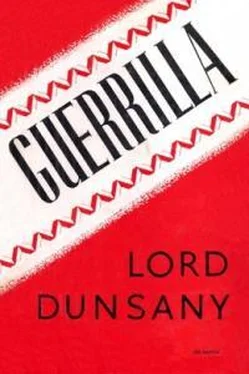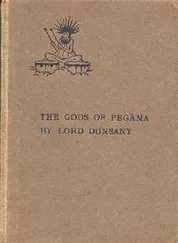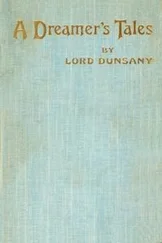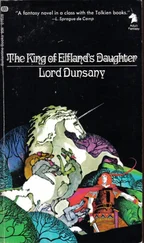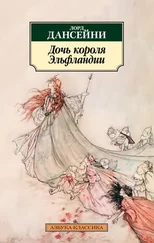Лорд Дансейни - Guerrilla
Здесь есть возможность читать онлайн «Лорд Дансейни - Guerrilla» весь текст электронной книги совершенно бесплатно (целиком полную версию без сокращений). В некоторых случаях можно слушать аудио, скачать через торрент в формате fb2 и присутствует краткое содержание. Год выпуска: 2015, Издательство: epubBooks Classics, Жанр: Прочие приключения, на английском языке. Описание произведения, (предисловие) а так же отзывы посетителей доступны на портале библиотеки ЛибКат.
- Название:Guerrilla
- Автор:
- Издательство:epubBooks Classics
- Жанр:
- Год:2015
- ISBN:нет данных
- Рейтинг книги:5 / 5. Голосов: 1
-
Избранное:Добавить в избранное
- Отзывы:
-
Ваша оценка:
- 100
- 1
- 2
- 3
- 4
- 5
Guerrilla: краткое содержание, описание и аннотация
Предлагаем к чтению аннотацию, описание, краткое содержание или предисловие (зависит от того, что написал сам автор книги «Guerrilla»). Если вы не нашли необходимую информацию о книге — напишите в комментариях, мы постараемся отыскать её.
Guerrilla — читать онлайн бесплатно полную книгу (весь текст) целиком
Ниже представлен текст книги, разбитый по страницам. Система сохранения места последней прочитанной страницы, позволяет с удобством читать онлайн бесплатно книгу «Guerrilla», без необходимости каждый раз заново искать на чём Вы остановились. Поставьте закладку, и сможете в любой момент перейти на страницу, на которой закончили чтение.
Интервал:
Закладка:
Probably as many as sixty–four of the planes were German, and there were less than fifty English, but still the Germans were being pursued as they swept over the Mountain westwards. A long burst of machine–gun fire sounded straight overhead, and another plane came screaming out of the sky. Then the flash of a shell shone brightly beside another, and it also came down headlong. A round white object shone above it like a light in the sky and descended slowly, a parachute in the sunlight. Cannon, machine–guns and shells moved away to the west, and grey crags muttered and resumed their silence and all was still again all over the Mountain. Hlaka jerked his head towards where the parachute had come down on the northern slope, and two men went down with their rifles.
The German infantry had stopped their advance when the air–battle began. The two men were Iskander and Srebnitz, and they hurried to get to the airman before he should reach the infantry. While he got to his feet and freed himself from his parachute Iskander and Srebnitz ran over a hundred yards, and were still out of shot of the infantry. When he did get clear of his parachute he came up the slope, instead of going the way they expected, and very soon they were certain of meeting him before any accurate fire could be brought on them from below.
"Hlaka does not want prisoners," said Iskander, and knelt down to get a steady shot.
But the airman shouted to him "English, Anglais ," and a few other names by which he supposed Englishmen to be known in Europe; and some of them were accurate, but for the accent; and one of them was near enough to what Iskander and Srebnitz themselves called his people. And Iskander ceased to aim, but still kept him covered.
"Look here," said the airman, "you don't understand. Ne comprenez pas. I am British. Anglais. You see?"
And something in his attitude towards them persuaded Iskander and Srebnitz that he was what he said, though they did not understand a word of English or French, and they gradually abandoned the idea that he was a German, which they had because they had not yet imagined any other people coming to the Mountain besides their own and the Germans.
"Churchill," said Iskander by way of greeting.
Srebnitz repeated it after him, and the Englishman said, " Bonjour , my boyos."
And so they were introduced. Still not a move came from the Germans below, on either side of the Mountain. Their orders had been to wait for the peaks to be bombed, and they were waiting for the return of their air–force. The Englishman continued to talk to the mountaineers. When he spoke English they sometimes understood him, because he understood what he was saying himself, and that somehow conveyed to them a part of his meaning; but sometimes he spoke French, perhaps because he did not understand it, and felt that people who did not understand English must understand what an Englishman did not understand; but indefinite thoughts are hard to analyse and he may merely have felt that whereas no English words were like any that these people spoke, the French, being nearer to them, might have some words that were the same, and he might chance on one of them while he spoke.
"Your name, old boy," he said after a while, pointing his finger at Srebnitz. " Nom , nombre , nomen ; N or M, you know." And one of these words reached Srebnitz's understanding and he told his name, and the Englishman did to his name what his countrymen have done to pneumonia and to Lake Tsana, finding too many letters in them and discarding one, and ever afterwards called him Rebnitz. Then he pointed similarly at Iskander saying " Et votre nom , my fine fellow?" And he got the name of Iskander, which had already been passed on from man to man through many centuries, losing a syllable here and a letter there on the way, and had once been Alexander. Then he stopped and pointed vigorously at himself, saying " Moi, je suis Malone. "
And they understood him.
"Strictly speaking," he said, "I'm neutral. Irlandais , you know. But those blighters down at the guns didn't seem to understand that."
"Churchill," said the two men.
Then Hlaka came down the slope towards them smiling; for he knew that his men would not dare to bring him a prisoner, and that therefore the stranger was British. And the Briton saluted and said, " Bonjour , Chief." For no deep insight was needed to see that Hlaka was master here.
"I am Hlaka," he said.
"Lanker, eh?" said the Briton, doing what most Englishmen have done to Hlangwani. " Moi, je suis Malone. "
XXVI
A little later Malone sat in a cave, deep in conversation with Hlaka. Two interpreters had been found, the cook and Gregor. And between them they explained Hlaka and Malone to each other.
"You can't stay here, you know," said Malone. "Not if the Germans keep on at you. What you want to do is to get away to the north. There's plenty of room for you in the mountains over there."
What Malone felt was that the British Empire was the leader of the free nations, and that, as he was the only Briton present, he must obviously do the best he could to represent the empire in a humble way, and therefore to lead. So he explained to Hlaka what he ought to do, and the grim old chieftain listened.
"The Germans won't attack yet awhile," said Malone. "They'll come up later in the afternoon."
"How do you know that?" asked Hlaka, when it was interpreted to him.
"I had a good deal to do with horses," said Malone, "before I joined my present outfit, and vicious ones among 'em. And, you see, I always had to know beforehand what a vicious horse was going to do, or he'd get me down. So I suppose I developed the knack. Anyway, I usually know what the Germans are going to do."
Hlaka pondered on this, and it took some pondering, even in the original. It was a very mysterious statement by the time the cook and Gregor had done with it; and the mystery attracted Hlaka. And there was a certain downrightness in Malone, such as had won the Battle of Britain. And there were not only the qualities that our airmen showed in that fight, nor the humble home–guard down below, and the A.R.P. wardens and fire–guards, but a certain doggedness that was shown in battle by the charwomen of London, and many another body that had no regimental badge, and whose work cannot possibly be argued to have won a battle. And yet the battle was won, and could not have been won without them. What quality these possessed and how it won the battle is beyond the power of definition; but, whatever it is, Hlaka recognized it in Malone, and seemed to see in it a lure for the winged Victory, whom the London charwomen had already lured from the sky.
"You'll be all right when you get to those mountains to the north," Malone went on. "You'll find some of our men there. Some of them got cut off, and they're there yet. And there's a lot of your own people up there too with them. You'll be all right when you get there, right as rain. Très bon comme la pluie. "
"It's a hundred miles to those mountains," said Hlaka.
"That's the trouble," said Malone. " Quelle domage , I mean. And there's Germans all the way, dotted over the plains like fleas in a dog's hair. Did you ever have a dog, Chief, that was bad with fleas? I tell you it's the devil. Well, the Germans are like that. You'd better go by night."
"It's a hundred miles," said Hlaka again.
"Yes, I know," said Malone. "What you want is a lift. A Sunderland flying–boat could take fifty of your men and get you there in about half an hour. I must call up one of them for you. But the trouble is the damned thing can't land. There's a river running out of those mountains that would be just big enough for it, but there's no water that I know of at this end."
Читать дальшеИнтервал:
Закладка:
Похожие книги на «Guerrilla»
Представляем Вашему вниманию похожие книги на «Guerrilla» списком для выбора. Мы отобрали схожую по названию и смыслу литературу в надежде предоставить читателям больше вариантов отыскать новые, интересные, ещё непрочитанные произведения.
Обсуждение, отзывы о книге «Guerrilla» и просто собственные мнения читателей. Оставьте ваши комментарии, напишите, что Вы думаете о произведении, его смысле или главных героях. Укажите что конкретно понравилось, а что нет, и почему Вы так считаете.
